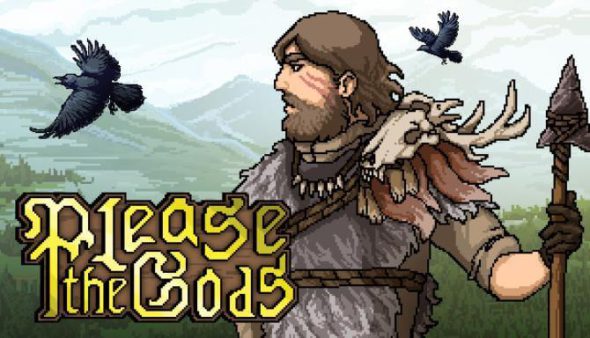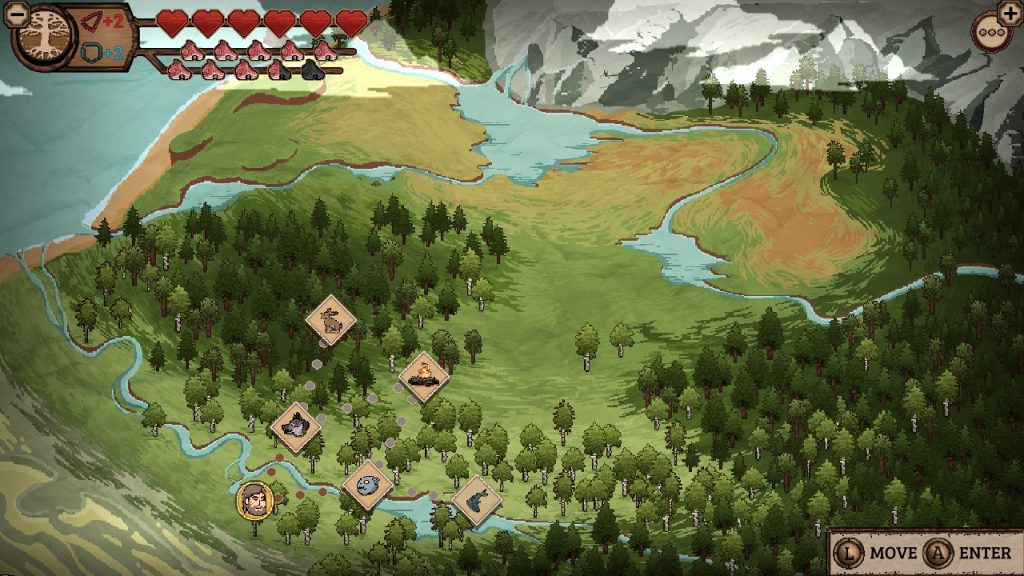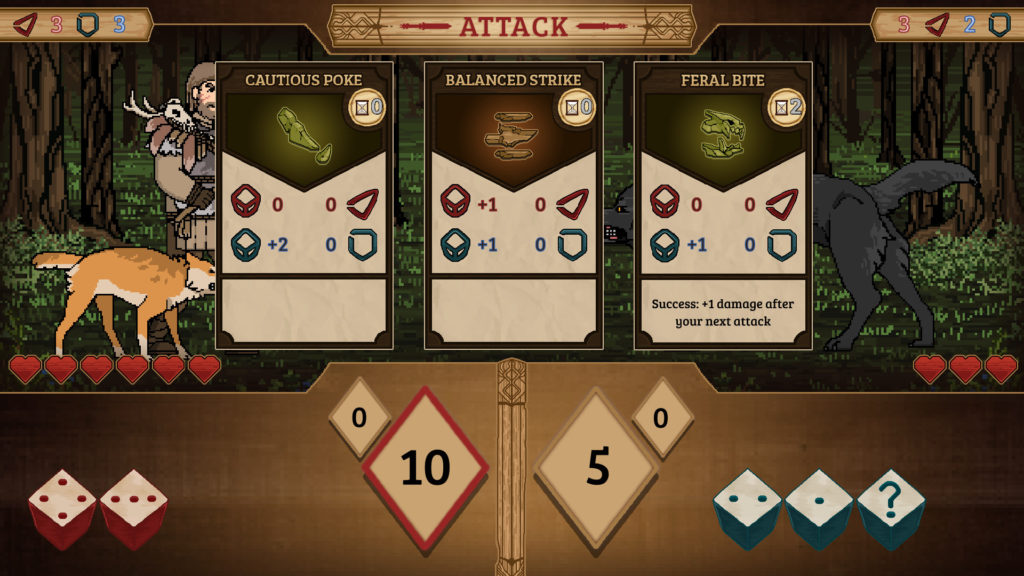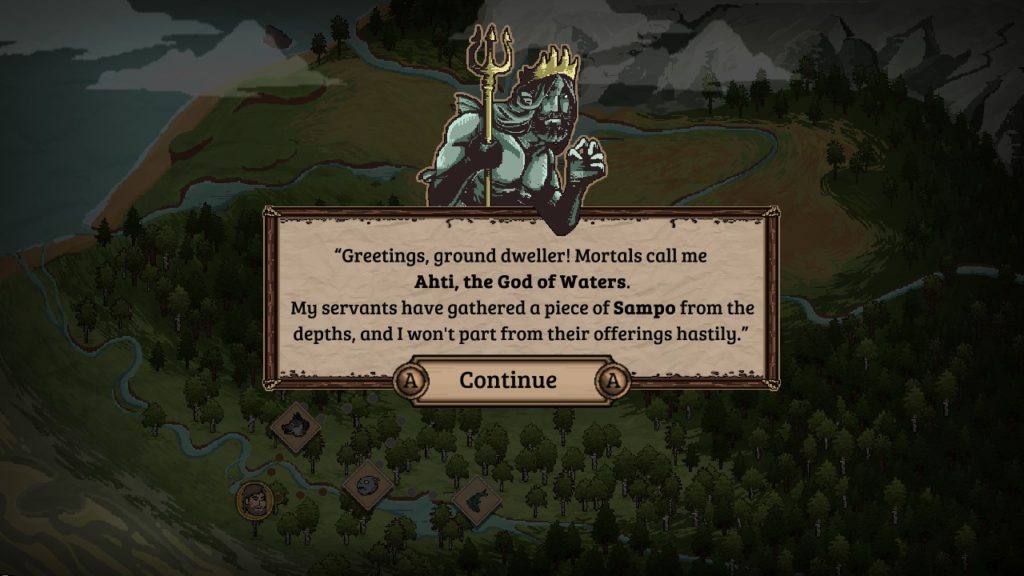
Developer: Surma Games
Publisher: Spawn Point OSK
Platform: Switch, PC
Tested on: Switch
Please the Gods – Review
If you’re looking for a different RPG experience, you might want to take a look at Please the Gods. Developer Surma Games promises an old-school fantasy RPG, that draws inspiration from Finnish mythology and classic tabletop games such as Hero Quest. Is it worth spending an evening with the Gods or are you better off elsewhere if you’re looking to cast a few dice?
Story
Prepare for a healthy amount of reading when you first boot up the game, as there is a lot of text-based exposition that sets up the events in Please the Gods. The game takes place in an undefined era in the past, though we’d say it’s early medieval times. Famine has hit the protagonist’s family hard, and they are starving. As fate would have it, the protagonist has a vision of a mystical object called Sampo, that will bring riches and good fortune. With the aid of the gods, he sets out on a quest to find the three fragments and save his family. After this exposition dump, there is very little dialogue that further fleshes out the story, apart from the occasional conversation with one of the three gods. A final note on the story is that the ending is anticlimactic, to say the least. If you’re looking for an RPG that offers a decent story experience, this is not your game.
Graphics
There is a subtle charm in the pixelated graphic style chosen to bring the world of Please the Gods to life. The simplistic drawings bring to mind old PC adventure games from the early 90s and befit the atmosphere the game is trying to express.
Sound
The music is mediocre and utterly forgettable. That doesn’t mean it’s bad, but just like the simple graphics, the game makes good use of limited resources for its soundscape. While the music ties everything together nicely, it won’t really stick with you and chances are you’ll have forgotten how it sounds about an hour after you finished the game.
Gameplay
Please the Gods is essentially a digital single-player version of a classic tabletop RPG in the vein of Dungeons and Dragons. As you travel the overworld in search of the three fragments of Sampo, you’ll quickly discover that the bulk of the game follows a simple but effective formula. Characters will tell you where to go next and Gods will tell you which boss to fight. This makes sense in the story but it does feel stale after a while, and it hurts the replay value. At times, Please the Gods feels heavily railroaded, and even though it’s an RPG, you never get to make any real decisions in how the events unfold.
You’ll move from random event to random event on the overworld map as you make your way to the next boss fight. These events offer plenty of variety, ranging from rabbit hunting to fishing to encounters with dangerous animals and other creatures. Non-combat events require a skill check, which is as easy as rolling your dice to determine the outcome. This means that RNG plays a huge part in how successful your endeavor will be. Failing to capture a rabbit might even mean a debuff in your next encounter as you become hungry. Combat events are also resolved through dice rolling, although you can alter the outcome here to a certain extent through unlockable skills that you pick up as you progress. Combat itself follows a turn-based formula with two phases.
During your attack phase, you need to roll higher than your opponent, otherwise, they’ll dodge it. During the defense phase, the same rules apply: roll higher than the opponent and dodge their strike. The skills come in the form of cards that you play before rolling. For example, you can play a card that reduces your defense roll in exchange for a bonus on your attack roll. Although these cards can make a difference when played at the right time, you’re still at the mercy of RNG. This is where Please the Gods’ biggest flaw lies: a bad roll can ruin your game. The game doesn’t allow you to save, and when you die, you’ll have to start over your quest. This means that most of the time, your death will feel unfair -the game is so reliant on good RNG that death can come quickly simply because you didn’t roll high enough. On the whole though, this over-reliance on RNG doesn’t hurt the game too badly. It still offers a fun experience with surprises around almost every corner, and the dice mechanic offers an uncertainty factor that really draws you into the game.
Conclusion
Please the Gods offers a fun experience for a few hours, albeit it’s heavily reliant on RNG. Depending on how lucky your rolls are, it shouldn’t take you more than an hour or five to complete the game, and given the relatively low price, it offers a decent experience. The story is the weakest part of the offering, but the randomized gameplay makes up for that.
Please the Gods - Review,








No Comments